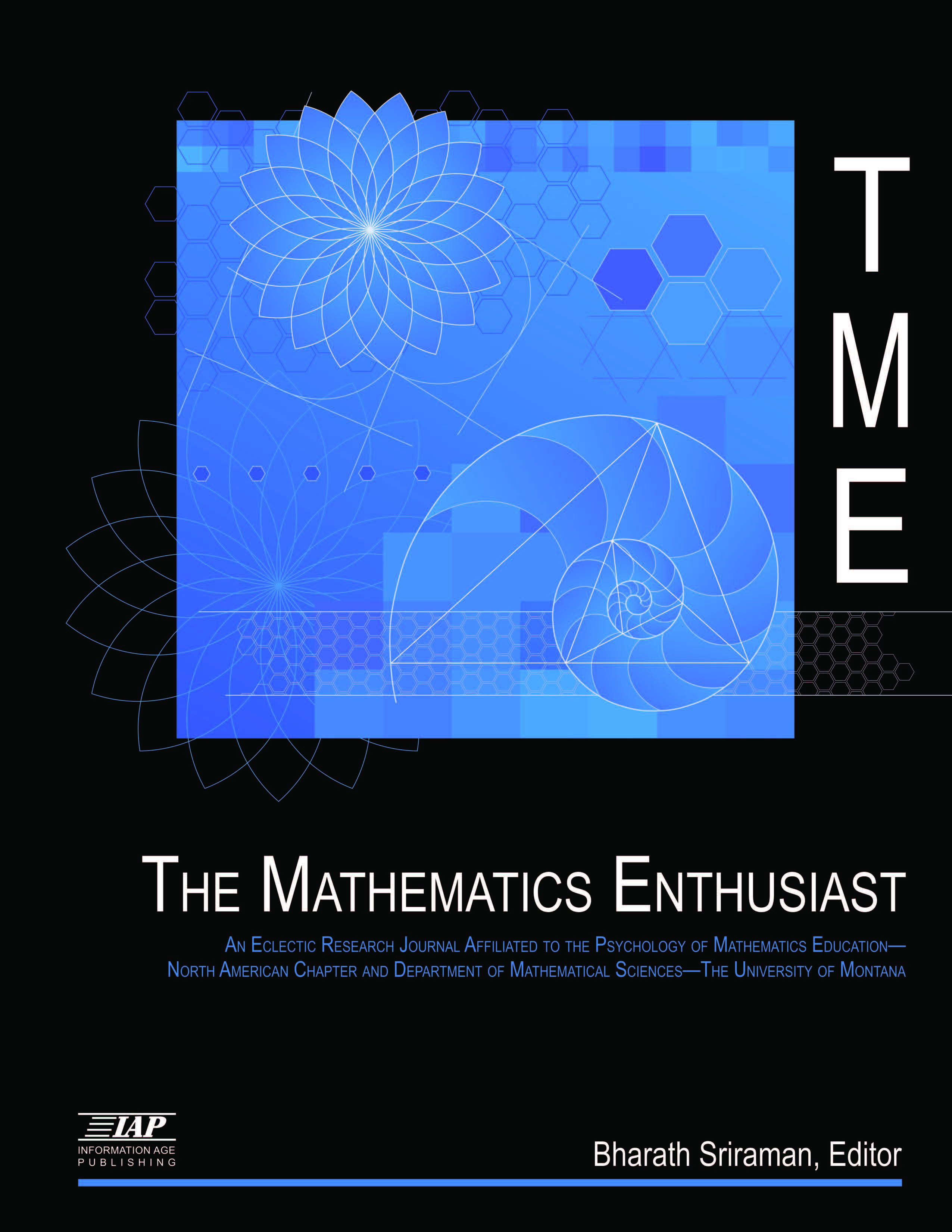
Volume
8
Issue
3
Abstract
Learning mathematics is a complex and multidimensional if not an inherently indeterminate process. A necessary goal of research on learning is to simplify this complexity without sacrificing the ability of research to inform teaching. This goal has been addressed in part by researchers focusing on how to represent research on learning for teachers and on how to support teachers to use and generate models of students’ learning (e.g., Franke, Carpenter, Levi, & Fennema, et al., 2001; Hammer & Schifter, 2001; Simon & Tzur, 2004; Steffe, 2004). Recently, the idea of learning trajectories has gained attention as a way to focus research on learning in service of instruction and assessment. It is influencing curriculum standards, assessment design, and funding priorities. In this paper – which grew out of my response to Michael Battista’s keynote address on learning trajectories at the last annual meeting of the North American chapter of Psychology in Mathematics Education (Battista, 2010) – I examine the idea of learning trajectories and speculate on its usefulness in mathematics education.
First Page
571
Last Page
596
Recommended Citation
Empson, Susan B.
(2011)
"On the idea of Learning Trajectories: Promises and Pitfalls,"
The Mathematics Enthusiast: Vol. 8
:
No.
3
, Article 6.
DOI: https://doi.org/10.54870/1551-3440.1229
Available at:
https://scholarworks.umt.edu/tme/vol8/iss3/6
Digital Object Identifier (DOI)
10.54870/1551-3440.1229
